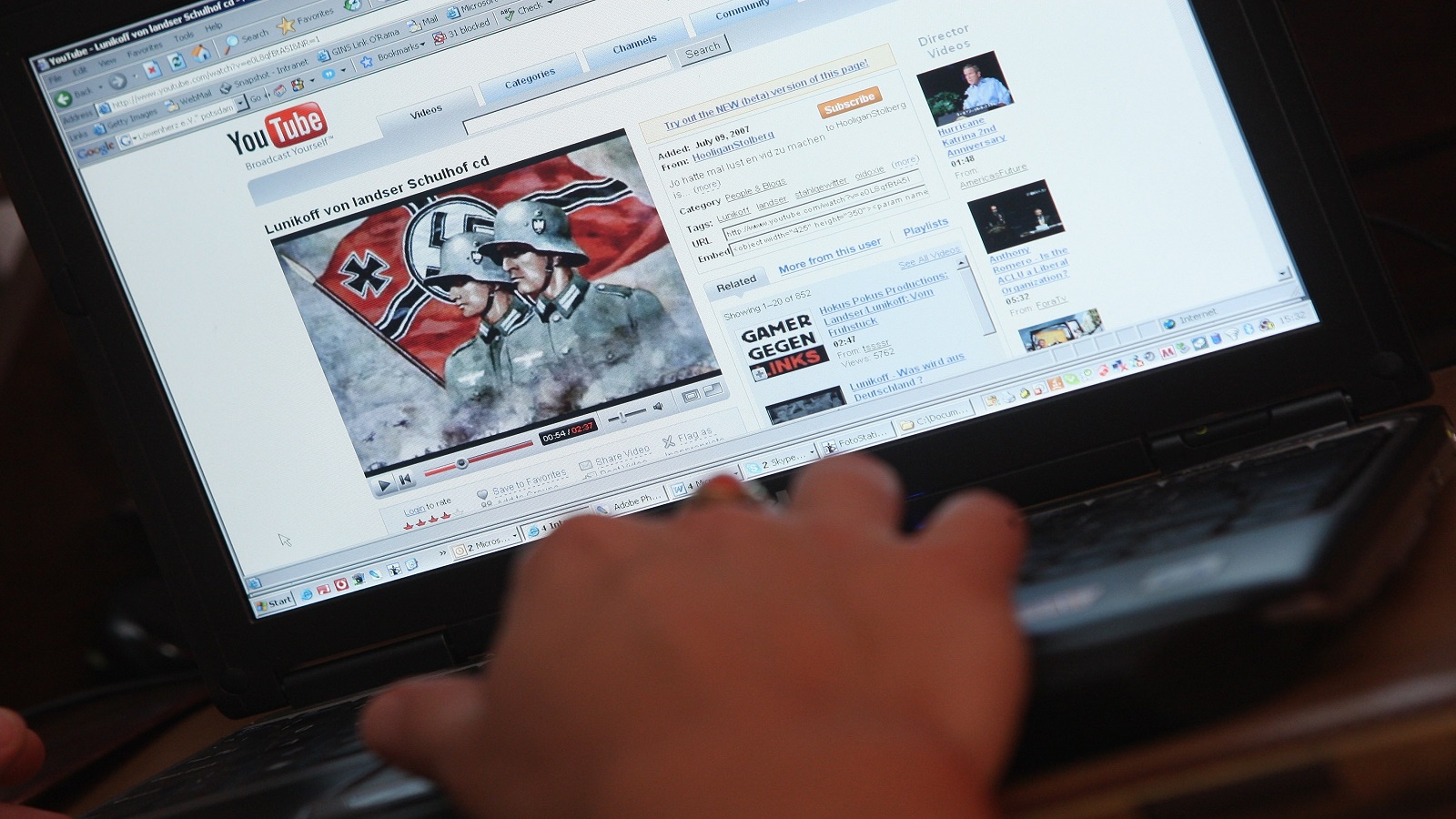Neo-Nazi Movements Thrive in the Digital Age
‘Nowadays most of the people involved in it are young,’ Wiesenthal Center expert tells The Media Line
International Holocaust Remembrance Day, marked last week, falls each year on January 27, the day the Red Amy liberated Auschwitz in 1945, and commemorates the 6 million Jews along with countless members of other minorities exterminated by the Nazis and their helpers.
It is our duty to remember, but we must also pay heed to the current situation because Nazism is yet to be defeated. Its ideology has endured since Hitler’s fall and until our days, now under the rubric of neo-Nazism.
This movement has spread and developed through the years, adapting itself in every generation since. Today, neo-Nazism acts and spreads primarily through the digital sphere, gaining renewed strength.
The world has seen many hate crimes and terrorist attacks carried out by the followers of this ideology. Among the most recent were the Tree of Life – Or L’Simcha Congregation synagogue shooting in Pittsburgh, Pennsylvania in October 2018, the Christchurch mosque shootings in New Zealand in March 2019 and the Poway synagogue shooting in Southern California in April 2019.
All these were carried out by far-right extremists influenced by the fast-growing ideology.
Neo-Nazism has existed since shortly after the defeat of the Third Reich.
One of the early neo-Nazi groups was founded by George Lincoln Rockwell, an American who had served as a US Navy officer in the Battle of the Atlantic against the Germans.
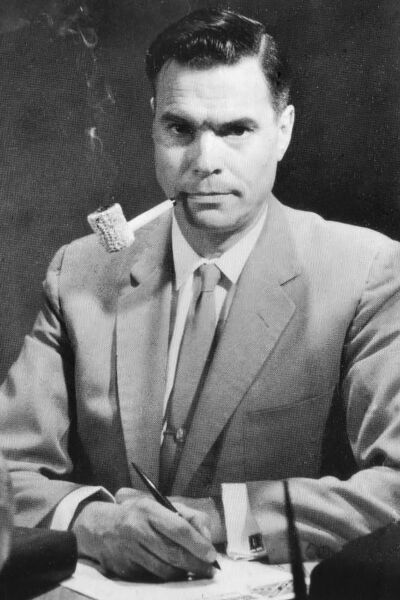
George Lincoln Rockwell. (angerkid51/Creative Commons)
Rockwell founded the World Union of Free Enterprise National Socialists in 1959 and renamed it the American Nazi Party in 1960.
Rick Eaton, director of research at the Los Angeles-based Simon Wiesenthal Center and co-director of its Digital Terrorism and Hate Project, asked to explain Rockwell’s seemingly contradictory actions, responded: “What else would get him so much attention this fast.”
Back then, Western European countries had laws against these kinds of groups, the use of Nazi symbols and racist activities, which delayed their resurgence for years, Eaton said.
The restrictions loosed up in these countries in the ’70s and ’80s, opening the door for neo-Nazi organizations to emerge throughout Europe, he continued.
However, Nabil Sanaullah, communications and press officer at the European Network Against Racism, told The Media Line that in Europe, the movement’s roots are deeply rooted in the past.
Those roots lie in Europe’s colonial past, which was “underpinned by the very same foundation of white supremacy which continues to impact ‘racialized’ communities today,” he said.
“When Hitler died his Nazi beliefs did not die with him, as the notion of racial superiority is engrained into our societies,” and these white supremacy-ideology groups adopted the German tyrant’s philosophy as it matched their own, Sanaullah said.
Neo-Nazi groups are spreading around the world.
Eaton said, “You have them in North and South America, Europe, Australia and South Africa. You even have them in Russia, even in a country that suffered so much at the hands of the Nazis.”
Sanaullah added that in countries such as Greece and Hungary, neo-Nazi movements have “a strong antisemitic basis of support.”
It is hard to tell how many of these organizations exist and how many supporters the movement has. “What we do know is that nowadays most of the people involved in it are young. The vast majority is probably under 30,” Eaton said.
“Sometime around 2017, a whole new generation came along composed of internet-savvy activists who connected through internet sites and communication apps like Telegram, and they started attracting younger people to the movement,” he added.
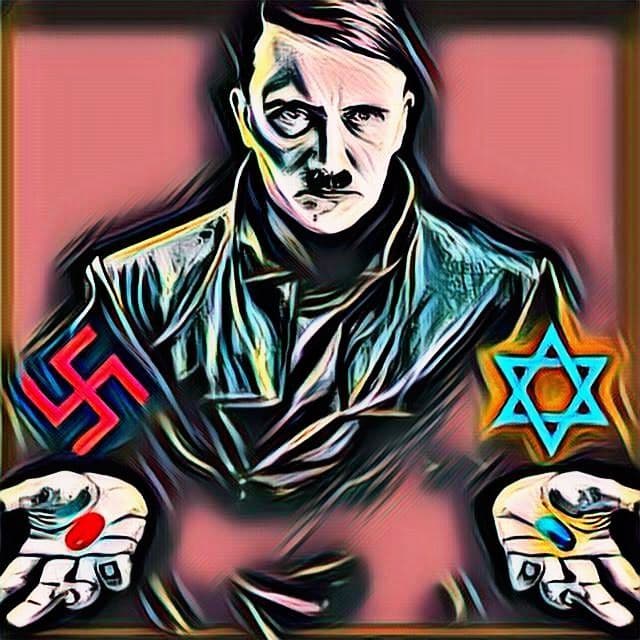
Neo-Nazi imagery found on Telegram platform. (Courtesy Simon Wiesenthal Center)
Today, the phenomenon is rather decentralized.
“These groups tend to argue with each other a lot; everyone wants to be the leader. There are some groups that get together, there are some attempts to form alliances, there is communication between groups here and in Europe and other places. But there is no organization that is even remotely close to being an umbrella type organization,” Eaton said.
Emily Thompson, associate director of the research department at the Simon Wiesenthal Center, told The Media Line that access to content and the ease of connecting with other people with the same ideology is reaching new heights, which bolsters the popularity of these organizations.
“If you’re an individual who is interested in these kinds of groups, you will easily find them. And even if you’re not, many times it all starts by ‘liking’ a meme or a joke that demeans minorities, which could set the ground for a cycle of content encouraging people to think more radically and get influenced by these organizations’ ideology,” Thompson said.
“Once you get into groups like these in Telegram there is just an endless stream of far-right and neo-Nazi groups that you can join, and then there are more encrypted chat platforms,” she added.
“The newest recruitment wave is taking place on the internet. These groups take a lot of time advertising themselves; they make graphic videos and all types of content to try and encourage people to join,” Thompson said.
Eaton said the keyboard warriors are highly prized by these groups. “They understand that spreading the message any way you can is good for their movement and ideals,” he explained.
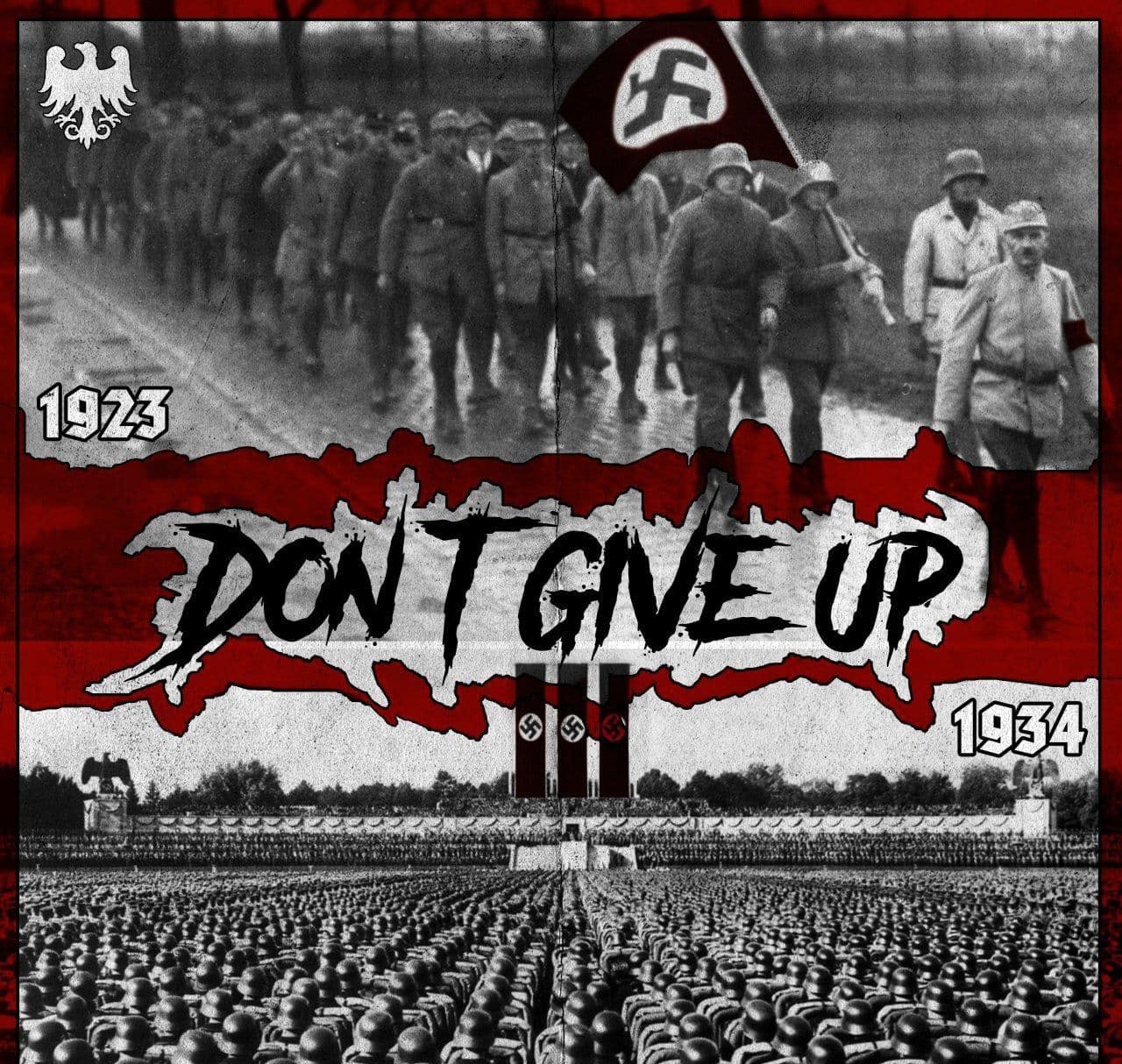
Neo-Nazi imagery found on Telegram platform. (Courtesy Simon Wiesenthal Center)
Thompson added that most people arrested in the United States for hate crimes had in their possession books or manifestos that promote these ideologies, among them Hitler’s Mein Kampf and the late neo-Nazi leader James Mason’s 1992 book Siege.
Mason was an admirer of cult leader Charles Manson and an ideologue for the Atomwaffen Division neo-Nazi terrorist organization.
Thompson said that through Telegram and other digital platforms, these groups “share manuals for explosives manufacture, ways to get weapons, defense tactics and shooting tutorials.”
Eaton noted that these organizations have managed to survive many obstacles as they adapt rapidly to new situations and tailor their messages to exploit current issues.
“Neo-Nazis are very resilient; they will use whatever issue is confronting the region where they are located. So if it’s immigration, if it’s crime, drug dealing or any other matter, they are very good at refocusing wherever there is an issue that will resonate with the people that they are trying to reach,” he said.
In Europe, for instance, Sanaullah explained that neo-Nazi movements are “setting the tone of the debate on immigration, particularly related to Muslim migrants.”
The experts added that many governments, especially in North America and Western Europe, are taking the threat very seriously.
In the United States, for instance, there are initiatives promoted by the Justice Department, where programs have been created to deal with online extremism, Eaton said. And some of the most dangerous groups, such as the US-based Atomwaffen Division, also known as the National Socialist Order, have been nearly dismantled by imprisoning many of its members for committing hate crimes.
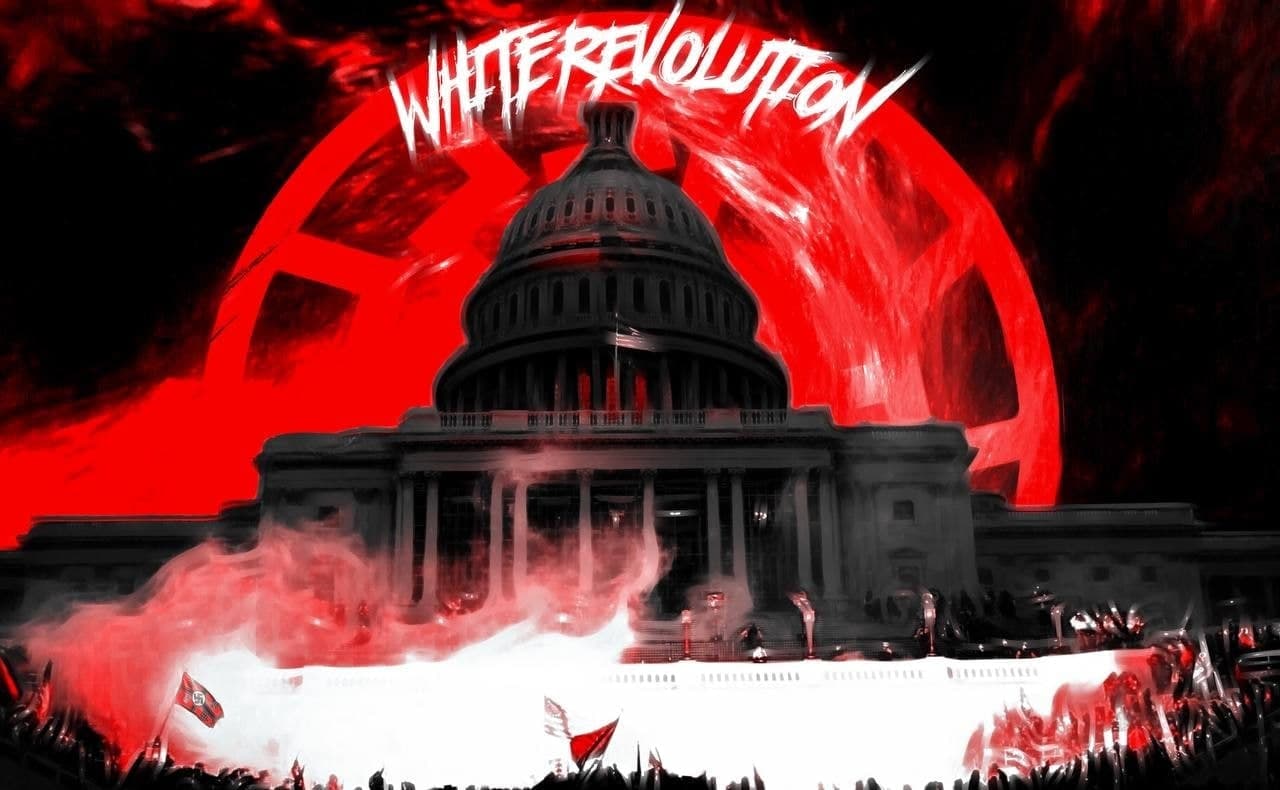
Neo-Nazi imagery found on Telegram platform. (Courtesy Simon Wiesenthal Center)
Sanaullah noted that in Europe, there is a political commitment from the institutions of the EU to tackle all forms of hate speech and hatred crimes that can be used as tactics of oppression by far-right groups. “In various efforts, the European Commission has developed few policies and targeted actions to prevent and counter right-wing extremism.”
This is not the case in Eastern Europe, Eaton pointed out.
“I feel that when you have a right-wing government, they don’t want to be seen as cracking down too hard on the extreme right unless they really get out of hand, and then they are forced to do something. Certainly, in Hungary and Poland they are allowing things to go on because in many ways they are part of it,” Eaton said, for example in their opposition to immigration.
“Unfortunately, some mainstream political parties often legitimize racist and xenophobic discourses put forward by far-right and neo-fascist groups instead of strongly rejecting them,” Sanaullah added.
The Wiesenthal Center experts suggested that the real solution lies in education, parental responsibility and social activities.
Many people recruited by neo-Nazis feel isolated and are looking for a place to belong, Thompson explained.
“I think society needs to make sure that these needs are met in good ways so that these people are not driven to turn to these organizations to satisfy their social needs,” she said.

